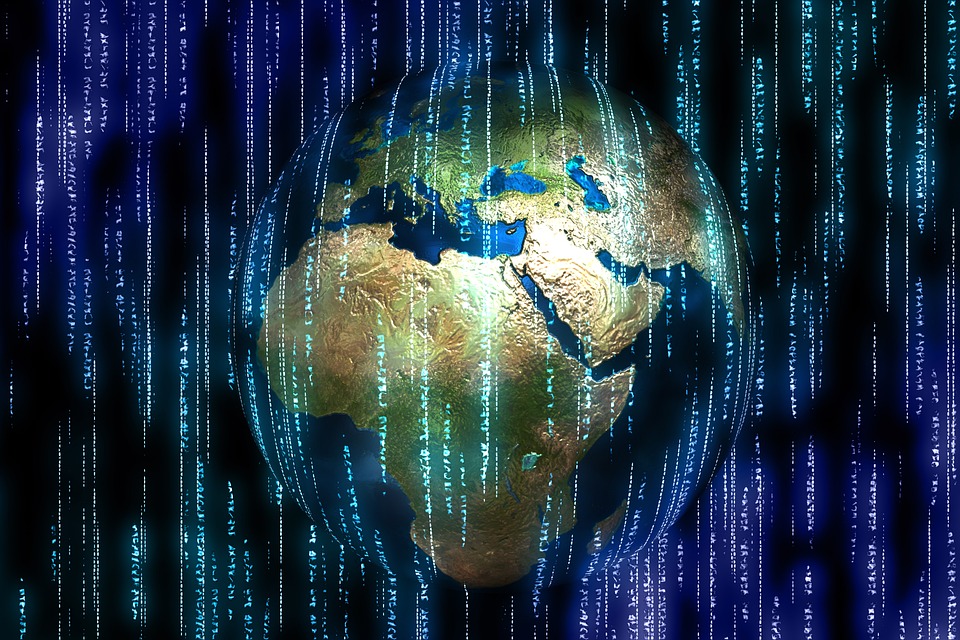The Hidden Heroes of Detoxification: Inside the Excretory System
Introduction
Detoxification is often associated with trendy diets, juice cleanses, and various wellness fads. However, beneath these surface-level practices lies a sophisticated biological system that continuously works to remove toxins from the body: the excretory system. Often overlooked, the organs involved in detoxification play a crucial role in maintaining homeostasis and overall health. This article will delve into the intricacies of the excretory system, highlighting the hidden heroes that ensure our bodies function optimally.
The Excretory System Explained
The excretory system, also known as the urinary system, is primarily responsible for the elimination of waste products and the regulation of water and electrolyte balance in the body. It consists of several key components:
1. Kidneys
The kidneys are the primary organs of the excretory system. They perform vital functions, including:
- Filtration: Blood is filtered in the glomeruli of the kidneys, where waste products, excess salts, and water are separated from essential substances like glucose and proteins.
- Reabsorption: Essential substances are reabsorbed into the bloodstream, ensuring that vital nutrients are conserved.
- Secretion: Waste products and excess ions are secreted into the renal tubules, where they ultimately form urine.
Kidney function is crucial for detoxification, and any impairments can lead to severe health complications.
2. Ureters
The ureters are muscular tubes that transport urine from the kidneys to the bladder. They utilize smooth muscle contractions, known as peristalsis, to propel urine downward. While they play a passive role, they are essential for continuous excretion of waste.
3. Bladder
The bladder is a muscular sac that stores urine until it is ready to be excreted. It can hold up to 600 milliliters of urine and is equipped with stretch receptors that signal the brain when it is time to void.
4. Urethra
The urethra is the final pathway for urine to exit the body. It varies in length between genders—around 4 cm in females and 20 cm in males—and is lined with smooth muscle, which aids in the expulsion of urine.
The Role of Kidneys in Detoxification
Filtration Process
The filtration process within the kidneys is nothing short of a marvel. Blood enters the kidneys through the renal arteries, which branch off from the aorta. Once in the nephron, the functional unit of the kidney, blood is filtered through a specialized structure called the glomerulus.
Filtration Barrier
The glomerulus is comprised of a network of capillaries that create a filtration barrier. This barrier is selective, allowing water, ions, and small molecules to pass while retaining larger molecules like proteins and blood cells. The filtrate that results from this process is essentially "pre-urine."
Reabsorption and Secretion
After filtration, the filtrate enters the renal tubules, where crucial reabsorption occurs. Here’s how:
-
Proximal Convoluted Tubule: About 65% of water and sodium is reabsorbed here, along with glucose and amino acids.
-
Loop of Henle: This section plays a crucial role in concentrating urine. Water is reabsorbed in the descending loop, while sodium is reabsorbed in the ascending loop.
-
Distal Convoluted Tubule: Further electrolytes are absorbed, and hydrogen ions are secreted, which contributes to acid-base balance.
- Collecting Duct: Here, additional water reabsorption occurs under the influence of antidiuretic hormone (ADH).
Regulation of Electrolytes
The kidneys also regulate electrolytes, including sodium, potassium, and calcium. They help maintain the body’s acid-base balance by excreting hydrogen ions and reabsorbing bicarbonate. This regulation is vital for optimal cellular function and can impact everything from muscle contractions to nerve signaling.
The Influence of Diet and Lifestyle on Kidney Function
Certain dietary choices and lifestyle factors significantly impact the kidneys’ ability to detoxify. A well-balanced diet, rich in fruits and vegetables, provides the necessary nutrients for kidney health. Conversely, a high-sodium diet can lead to hypertension, which is detrimental to kidney function.
Hydration
Adequate hydration is essential for optimal kidney function. Water not only aids in the filtration process but also helps dilute urine, reducing the risk of kidney stones.
Herbal Remedies
Certain herbs, such as dandelion and nettle, have been traditionally used to support kidney function. However, their efficacy often remains scientifically unproven, emphasizing the importance of consulting healthcare providers before utilizing herbal supplements.
Common Kidney Disorders and Their Impact on Detoxification
Kidney disorders can severely impair detoxification mechanisms. Some prevalent conditions include:
1. Chronic Kidney Disease (CKD)
CKD is characterized by a progressive loss of kidney function over time, ultimately leading to the accumulation of waste products in the bloodstream.
2. Acute Kidney Injury (AKI)
This sudden loss of kidney function can result from various factors, including dehydration, infections, and toxic chemicals. Immediate medical attention is essential to prevent irreversible damage.
3. Kidney Stones
Composed of mineral deposits, kidney stones can obstruct urine flow and cause excruciating pain. They often form due to dehydration, excessive calcium, or uric acid levels.
4. Glomerulonephritis
This inflammation of the kidney’s filtering units can result from infections, autoimmune diseases, or certain medications. It leads to proteinuria and can severely impact kidney function.
The Role of Ureters, Bladder, and Urethra in Detoxification
While the kidneys are the primary filters, the ureters, bladder, and urethra serve vital roles in the transportation and expulsion of urine.
Ureters and Peristalsis
The ureters’ muscle contractions promote the movement of urine from the kidneys to the bladder. If this process is interrupted, it can lead to urinary retention and other complications.
The Bladder: A Storage and Release Mechanism
The bladder allows for timed elimination of waste. It ensures urine is stored until there is a suitable opportunity for excretion, which helps prevent urinary tract infections (UTIs) caused by stagnant urine.
Urethra: The Final Pathway
The urethra’s role in excretion is the final step of detoxification. However, its length and resistance to infection vary, highlighting the anatomical differences between males and females.
Hormonal Regulation of the Excretory System
Hormones play a critical role in regulating the functions of the excretory system. Key hormones include:
1. Antidiuretic Hormone (ADH)
Produced by the hypothalamus and released by the pituitary gland, ADH regulates water reabsorption in the kidneys. Elevated levels result in more concentrated urine, while low levels lead to diluted urine.
2. Aldosterone
Secreted by the adrenal glands, aldosterone promotes sodium and water reabsorption in the distal convoluted tubule. It plays an essential role in regulating blood pressure and volume.
3. Atrial Natriuretic Peptide (ANP)
ANP is released by the heart in response to increased blood volume. It promotes sodium excretion and inhibits the effects of aldosterone, contributing to decreased blood volume and lower blood pressure.
The Impact of Toxins on the Excretory System
The excretory system must continuously combat various toxins entering the body, ranging from environmental pollutants to dietary chemicals.
Environmental Toxins
Heavy metals, pesticides, and industrial chemicals can accumulate in the body and are often filtered through the kidneys. Chronic exposure can lead to kidney damage and decreased detoxification efficiency.
Dietary Chemicals
Processed foods, artificial additives, and preservatives pose significant challenges to the excretory system. High sodium levels, for instance, can lead to hypertension and kidney strain over time.
Alcohol and Drug Metabolism
Both alcohol and various medications are metabolized in the liver but are eventually excreted via the kidneys. Chronic consumption can lead to significant stress on the renal system, impairing detoxification.
Supporting Kidney Health and Detoxification
Maintaining kidney health is crucial for effective detoxification. Here are some practical tips:
1. Stay Hydrated
Drinking sufficient water aids in urine production and dilution of waste products. It is generally recommended to drink at least 8-10 cups of fluids daily.
2. Eat a Balanced Diet
A diet rich in fruits, vegetables, whole grains, and lean proteins supports kidney health. Foods high in antioxidants, such as berries and leafy greens, help neutralize free radicals and reduce oxidative stress.
3. Limit Sodium Intake
Excess sodium can lead to hypertension and kidney damage. Aim for less than 2,300 mg of sodium daily, or lower if advised by a healthcare provider.
4. Avoid Tobacco and Excessive Alcohol
Both tobacco use and heavy alcohol consumption can have deleterious effects on kidney function. Moderation is critical.
5. Regular Check-ups
Routine medical check-ups, including kidney function tests, are essential for early detection of any potential issues.
Conclusion
The excretory system, often taken for granted, is a robust and complex system that plays a vital role in detoxification. The kidneys, ureters, bladder, and urethra work in synergy to remove waste and regulate bodily functions. Understanding their roles and maintaining kidney health are crucial for optimizing detoxification processes. As we navigate through modern influences and lifestyle choices, let’s give a nod to these hidden heroes of our detoxification journey and make conscious efforts to support their essential functions.
References
- Anderson, J. (2022). Kidney Health: A Comprehensive Overview. Health Press.
- Bella, C. (2023). "Diet and Kidney Function: The Hidden Truth." Journal of Nutritional Biochemistry, 42, 100-110.
- Carver, S., & Delozier, E. (2023). Renal Physiology: Mechanisms of Kidney Function. Academic Press.
- Evans, P. (2021). "Toxins in Our Environment: Impact on Human Health." Environmental Health Perspectives, 129(7), 075001.
- Foster, R., & Keller, D. (2020). "Nutrition and Kidney Disease." Nutritional Reviews, 78(5), 349-358.
- Green, A. & Marks, J. (2023). Understanding Kidney Disease: A Patient’s Guide. Publishers Inc.
- Thompson, L. (2022). "The Role of Hormones in Kidney Function." Kidney International, 100(1), 12-20.
- Wilson, B. (2020). "Managing Chronic Kidney Disease: Dietary Considerations." Journal of Renal Nutrition, 30(5), 267-275.
This article provides a comprehensive overview of the excretory system and its role in detoxification, offering insights into how the organs work together, the impact of diet and lifestyle, and the importance of maintaining kidney health. It’s crucial to support these hidden heroes in our bodies, ensuring they continue to function optimally for our overall well-being.


























Add Comment